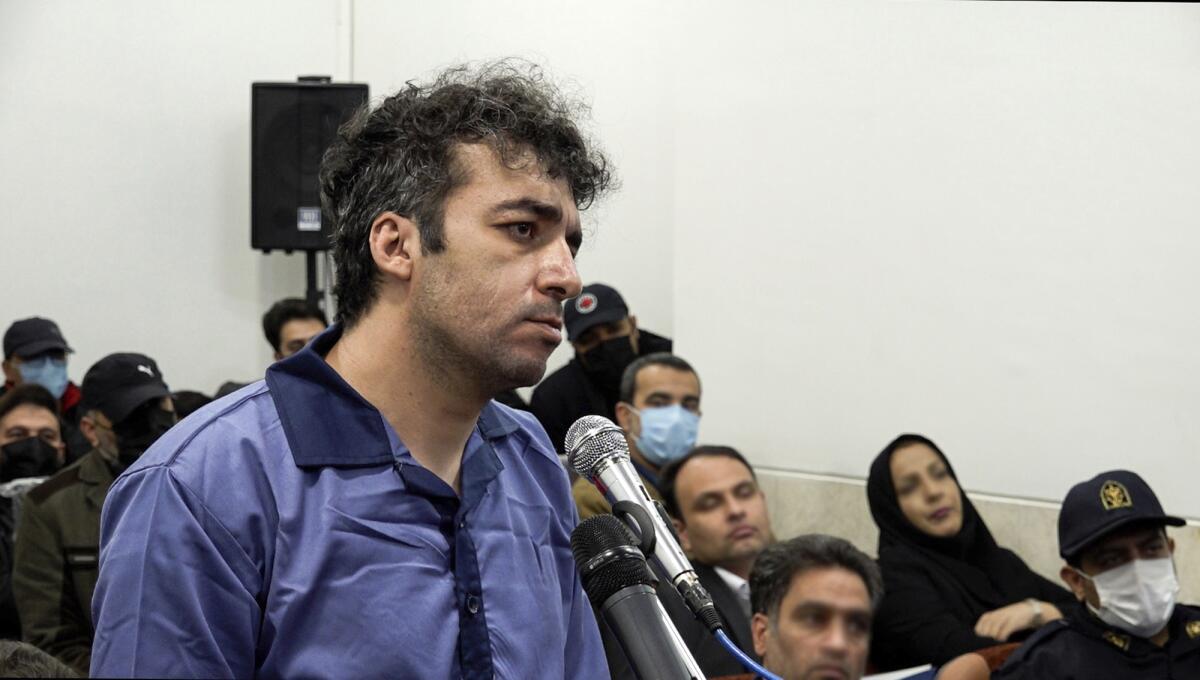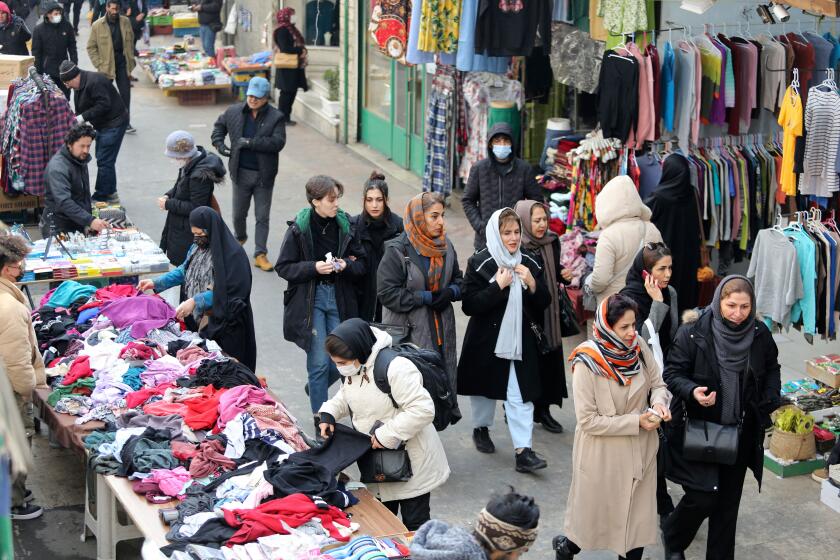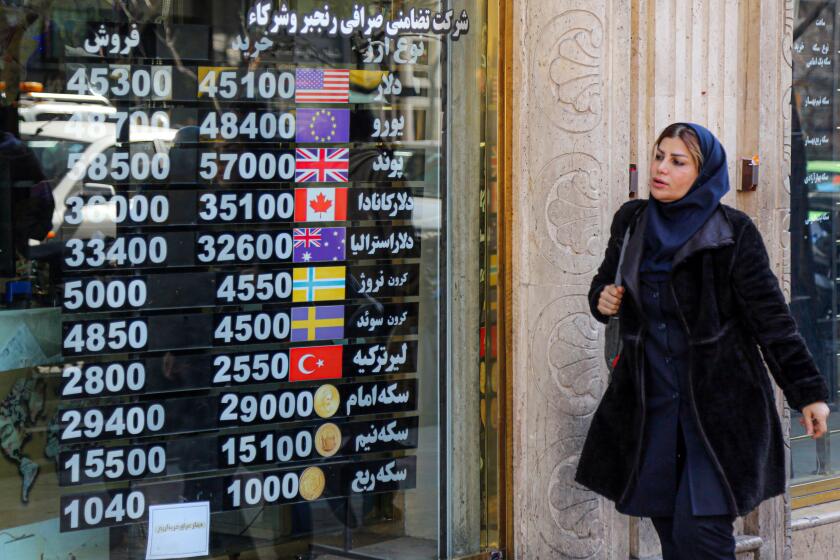Iran executes 3 men over violence during last year’s anti-government protests

- Share via
DUBAI — Iran on Friday executed three men accused of deadly violence during last year’s anti-government protests, despite objections from human rights groups.
Mizan, the Iranian judiciary’s website, announced the executions of Majid Kazemi, Saleh Mirhashemi and Saeed Yaghoubi without saying how they were carried out. Authorities say they killed a police officer and two members of the paramilitary Basij group in the city of Isfahan in November during nationwide protests.
Rights groups say the three were subjected to torture, forced into televised confessions and denied due process.
The protests erupted in September after the death of Mahsa Amini, a 22-year-old woman who had been detained by the country’s morality police for allegedly violating its strict Islamic dress code. The demonstrations rapidly escalated into calls for the overthrow of the theocracy that has ruled Iran since the 1979 Islamic Revolution.
The demonstrations have largely subsided in recent months, though there are still sporadic acts of defiance, including the refusal of a growing number of women to wear the mandatory Islamic headscarf, known as the hijab.
Iran has executed at least seven people in connection with the protests. Rights groups say they and several others who have been sentenced to death were convicted by secretive state security courts and denied the right to defend themselves.
Iranians are finding it harder than ever to afford even basic goods as political unrest roils the country and the government cracks down harshly.
“The prosecution relied on forced ‘confessions,’ and the indictment was riddled with irregularities that reveal this was a politically motivated case,” Hadi Ghaemi, executive director of the New York-based Center for Human Rights in Iran, said of the three men executed Friday.
The group said Kazemi had called a relative and accused authorities of torturing him by flogging his feet, using a stun gun and threatening him with sexual assault.
London-based Amnesty International also criticized the cases.
“The shocking manner in which the trial and sentencing of these protesters was fast-tracked through Iran’s judicial system amid the use of torture-tainted ‘confessions,’ serious procedural flaws and a lack of evidence is another example of the Iranian authorities’ brazen disregard for the rights to life and fair trial,” said Diana Eltahawy, Amnesty’s deputy director for the Middle East and North Africa.
Political and economic instability is spurring more Iranians to look for a way to leave their country, through both legitimate and illegal means.
Iran launched a heavy crackdown on the protests, portraying them — without evidence — as a foreign-backed conspiracy. The protesters said they were fed up after decades of repression and poor governance. Iran’s economy has been in a tailspin since the U.S. unilaterally withdrew from a 2015 nuclear agreement and restored crippling sanctions.
Robert Malley, the U.S. envoy for Iran, had spoken out against the imminent execution of the three men, calling it “an affront to the human rights and basic dignity of all Iranians” that showed the government “has learned nothing from the protests.”
“The United States will continue to stand with the Iranian people. We are coordinating closely with our allies and partners to expose and confront the Iranian regime’s unremitting human rights abuses,” Malley tweeted Thursday.
More than 500 people were killed during months of protests, including dozens of members of the security forces. Some 19,000 people were arrested, though many have since been released.
Iran is one of the world’s leading executioners. At least 582 people were executed in 2022, up from 333 the previous year. The surge in executions, including for drug violations and vague charges of “enmity against God” and “spreading corruption on Earth,” has drawn criticism from United Nations officials and human rights activists.
More to Read
Sign up for Essential California
The most important California stories and recommendations in your inbox every morning.
You may occasionally receive promotional content from the Los Angeles Times.











